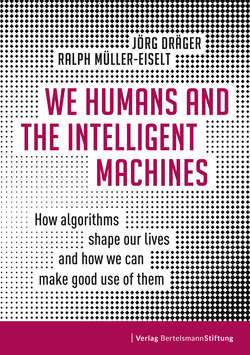Читать книгу We Humans and the Intelligent Machines - Jörg Dräger - Страница 14
На сайте Литреса книга снята с продажи.
3People make mistakes
Оглавление“Artificial intelligence is better than natural stupidity.” 1
Wolfgang Wahlster, Former Director of the
German Research Center for Artificial Intelligence
To err is human. This well-known saying provides consolation when something fails; at the same time, it seems to dissuade us from pursuing perfection. A mistake can even have a certain charm, especially when a person is self-deprecating about her own fallibility. But the original Latin phrase, from which the saying derives, is longer than just the first words. Written by the theologian Saint Jerome more than 1,600 years ago, the complete quotation is: Errare humanum est, sed in errare perseverare diabolicum. To err is human, but to persist in error is diabolical.
As sympathetic as a small lapse that does not entail any serious consequences might seem, systematic misjudgments are tragic when they relate to existential questions. Cancer diagnoses, court decisions, job hires – generosity should not be the watchword here when it comes to avoidable mistakes.
Algorithms can help when people reach their cognitive limits. There is an increasing need for algorithmic support, especially in areas that are particularly important to society, such as medicine or the judiciary. On the one hand, psychological research has shown that the quality of human decisions is suboptimal even when the decisions are of great significance and made by experts. On the other, big data and the computer power for processing it have led to new ways of optimizing diagnoses, analyses and judgments.
While scientists have become more adept at understanding the limits of our cognitive abilities, advances in IT are making more information available to us. Evaluating that information, however, is becoming increasingly challenging, even overwhelming, for human brains. To refuse ourselves the support machines can provide would mean to persist in error. By accepting such support, we could overcome our intellectual limitations, which get expressed as information overload, flawed reasoning, inconsistency and the feeling of being overwhelmed when dealing with complex situations. To refrain from doing so would not be human as described by Saint Jerome, but diabolical.
